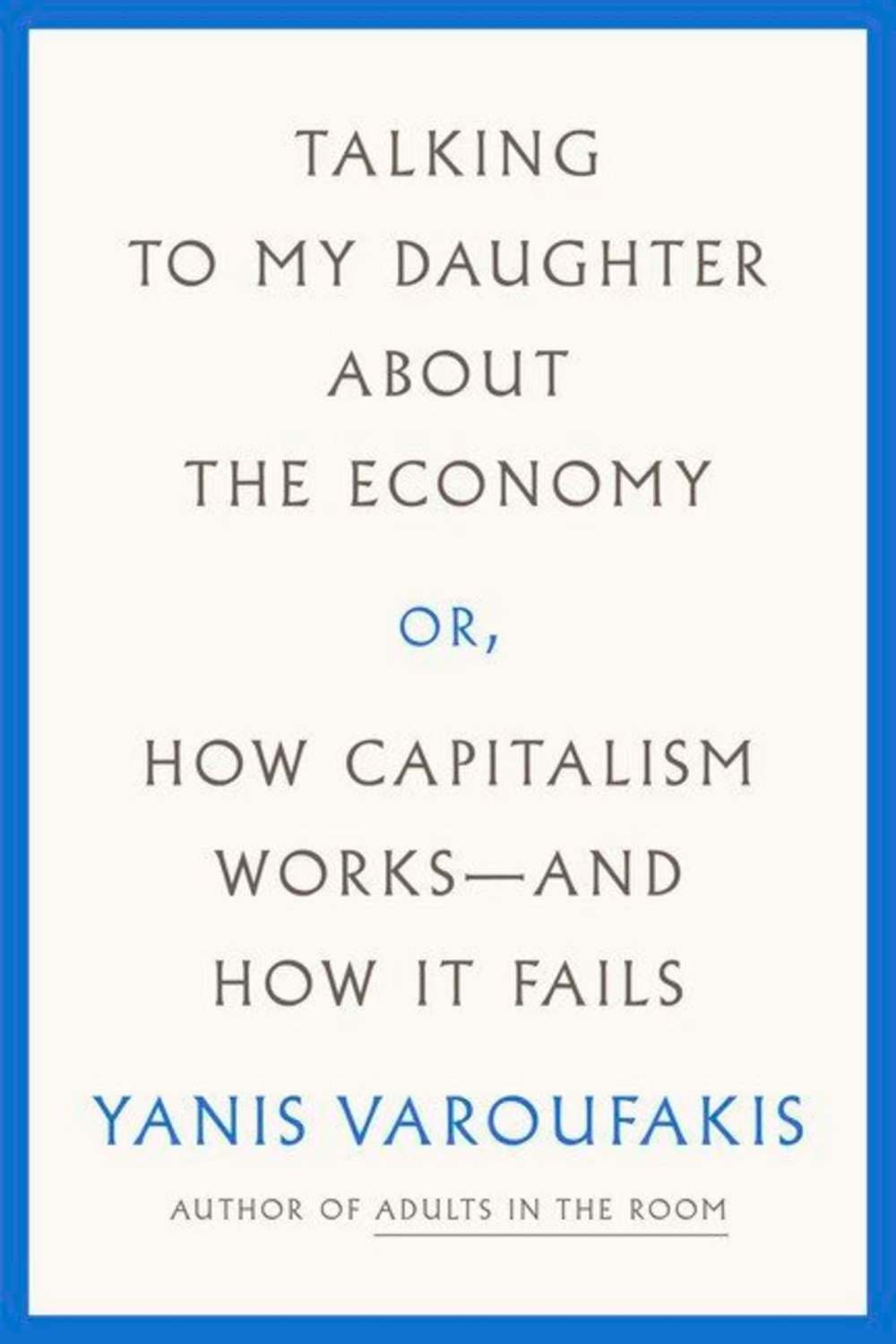Varoufakis offers timely economic tidbits
Advertisement
Read this article for free:
or
Already have an account? Log in here »
To continue reading, please subscribe:
Monthly Digital Subscription
$0 for the first 4 weeks*
- Enjoy unlimited reading on winnipegfreepress.com
- Read the E-Edition, our digital replica newspaper
- Access News Break, our award-winning app
- Play interactive puzzles
*No charge for 4 weeks then price increases to the regular rate of $19.00 plus GST every four weeks. Offer available to new and qualified returning subscribers only. Cancel any time.
Monthly Digital Subscription
$4.75/week*
- Enjoy unlimited reading on winnipegfreepress.com
- Read the E-Edition, our digital replica newspaper
- Access News Break, our award-winning app
- Play interactive puzzles
*Billed as $19 plus GST every four weeks. Cancel any time.
To continue reading, please subscribe:
Add Free Press access to your Brandon Sun subscription for only an additional
$1 for the first 4 weeks*
*Your next subscription payment will increase by $1.00 and you will be charged $16.99 plus GST for four weeks. After four weeks, your payment will increase to $23.99 plus GST every four weeks.
Read unlimited articles for free today:
or
Already have an account? Log in here »
Hey there, time traveller!
This article was published 19/05/2018 (2744 days ago), so information in it may no longer be current.
In his odd little book about capitalism and the global economy, former Greek finance minister Yanis Varoufakis attempts to explain the origins and evolution of market economies, including the seemingly inescapable tendencies of these systems to generate inequality among and within nations.
Some readers will recall Varoufakis’ brief and tumultuous showdown with the global financial community during the Greek economic crisis of 2015 and his resulting bestselling memoir about these negotiations, Adults in the Room: My Battle with the European and American Deep Establishment.
Varoufakis admits to penning this current plain-language work in only nine days (!) whilst basking in the paradise of his island home overlooking Greece’s Saronic Gulf. The author’s chosen device for meeting this ambitious goal takes the form of lessons or discourses to his daughter, who resides in Australia and is evidently a constant absence in his life.

Unlike many economic studies that begin and end in modern times — or perhaps go back only so far as the Industrial Revolution — Talking to my Daughter About the Economy traces the roots of the market society to ancient feudal civilizations, to early forms of global trade and, eventually, to an imagined futuristic world. Along the way, we learn of the origins of debt and the need for entrepreneurs to acquire financial liability in advance of production, the concept of surplus and profit and the manner in which early and even contemporary banking is able to simply conjure capital and wealth “out of thin air.”
Later in this short book, the author turns to a welcome discussion of the emergence of cryptocurrencies — and particularly Bitcoin — before concluding with a sort of “tragedy of the commons”-type analysis of the future of our fragile global ecosystems and the role markets may play in either protecting or obliterating our planet.
No doubt, at least partially because of the hastily assembled creative timeline for this book, this work suffers from a kind of shifting stream of consciousness, a heavy reliance on references grounded in ancient mythology and science fiction (the movie The Matrix is deployed as a recurring demonstration of various theories and concepts) and the patchy (at best) use of the father-to-daughter ploy.
Despite these weaknesses, this sometimes-entertaining book can be easily consumed in one or two sittings — which seems about right for a book that was written in just nine days.
Scott MacKay is the president of Probe Research Inc., a Winnipeg-based public opinion and marketing research organization.

